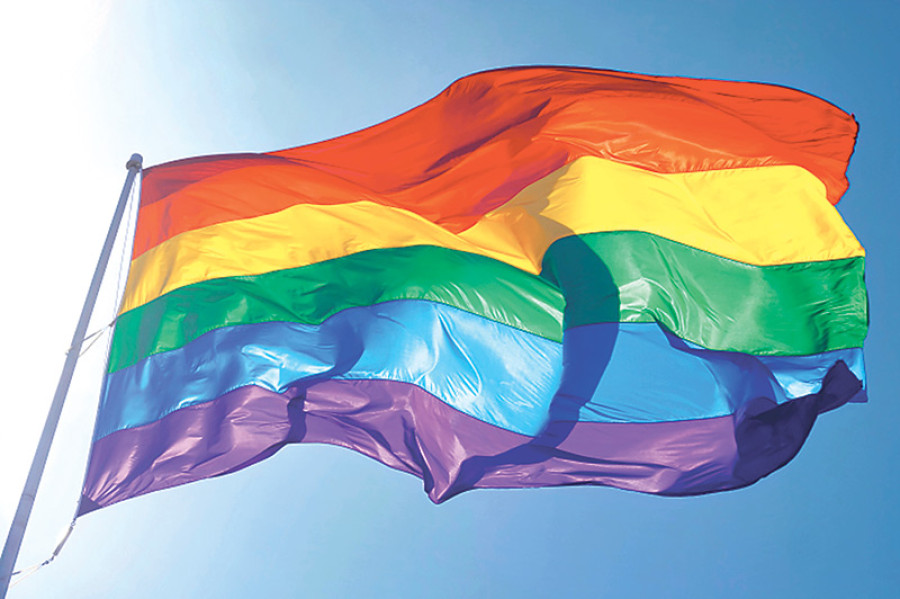Opinion
Love comes to everyone
From our early childhood, we are so used to people being in a relationship with the opposite sex that we tend to believe it is the only norm of life.
Sumeru Sambahangphe
From our early childhood, we are so used to people being in a relationship with the opposite sex that we tend to believe it is the only norm of life. If we happen to hear or witness anything out of the usual, like same-sex relationships or a different sexual orientation, we automatically categorise it as queer or wrong. Especially in Nepali society, where patriarchy is the way of life and a significant number of people are illiterate, something out of the average—like same-sex relationships—can be a cause for much gossip. LGBT, or GLBT, by definition, is an initialism that stands for lesbian, gay, bisexual and transgender. It is intended to emphasise a diversity of sexuality and gender identity-based cultures.
Since 2006, many previously marginalised communities and minorities, such as women, indigenous people and religious minorities, have been gradually getting more rights. They have also benefited—to some extent—from affirmative action. Politically speaking, under the proportional representation system, political parties are required to set aside seats for women, Madhesis, Dalits, indigenous people and others. But sexual and gender minorities, that is those whose sexual identity, orientation or practices differ from the majority of the surrounding society, are still openly stigmatised and discriminated against.
Currently, homosexual acts are legal in almost all Western countries, and in many of them, violence against LGBT people is classified as a hate crime. But this has not always been the case. In fact, many countries in Africa, some Asian countries and some former Communist countries in Eastern Europe and Central Asia are still very dangerous for LGBT people because of discrimination against homosexuals.
Currently, same-sex marriage is illegal in 72 countries and punishable by death in eight. Homosexual acts can result in a prison sentence in dozens of countries, according to an annual report by the International Lesbian, Gay, Bisexual, Trans and Intersex Association (ILGA).
Practicing acceptance
Nepal is one of the most progressive countries in the world with regard to lesbian, gay, bisexual, transgender and intersex (LGBTI) rights, and its current LGBTI laws are some of the most open in the world. Nepal’s new constitution, approved by the Constituent Assembly on September 16, 2015, includes several provisions pertaining to the rights of LGBTI people, some of which include: the right to have their preferred gender displayed on their identity card and a prohibition on discrimination on any ground, including sex or sexual orientation. The new constitution has recognised LGBTI rights as fundamental rights; but sadly, they have yet to be practically implemented in society.
Despite official recognition on paper and some political advances, it is family pressure and social expectations that force most LGBT people to stay firmly in the closet.
Family life is considered the most important in Nepal, and families are, almost without exception, formed out of marriage between heterosexual couples. Coming out as an LGBT individual to family, friends and society is uncommon. Even if they do come out, they are often shunned and mistreated. The general expectations of gender roles, that is a man as the breadwinner and a woman as the caretaker of the house, prevails all over Nepal. These norms may stigmatise any LGBTI identified Nepali who chooses to operate outside of their gender roles, but they affect LGBTI women the most, as women, more than men, are expected to conform to societal expectations of marriage.
Changing mind-sets
“Marriage is seen as obligatory and sacramental, more than just a bond between two individuals but one between families. It is the promise of continuity in patriarchal family lines and has deep religious, social, and institutional significance.” This ancient Hindu concept is very deeply ingrained in the minds of people, and thus, LGBT people are compelled to marry somebody from the opposite sex as desired by the family, produce offspring and start a family despite their own preferences. If not, they should be prepared to physically/emotionally distance themselves from their families.
The scenario is gradually changing though. With more people exposed to education and urbanisation, they have become more accepting towards people of all groups. Social media, television and various other forms of media have also greatly helped people to become open-minded on this issue. I vividly remember once when some of my seniors and I were having a chat on this issue, and one of them said, “When I do finally have a child, I don’t care if he or she has a different sexual orientation or wants something different from the norm. As long as they are happy, I am happy.” If only all parents had that sort of mentality and understanding level, life would be so much better for everybody. After all, love is love, no matter which gender or race we choose to be with.
Sambahangphe is a student of journalism with a major in English




 14.24°C Kathmandu
14.24°C Kathmandu











